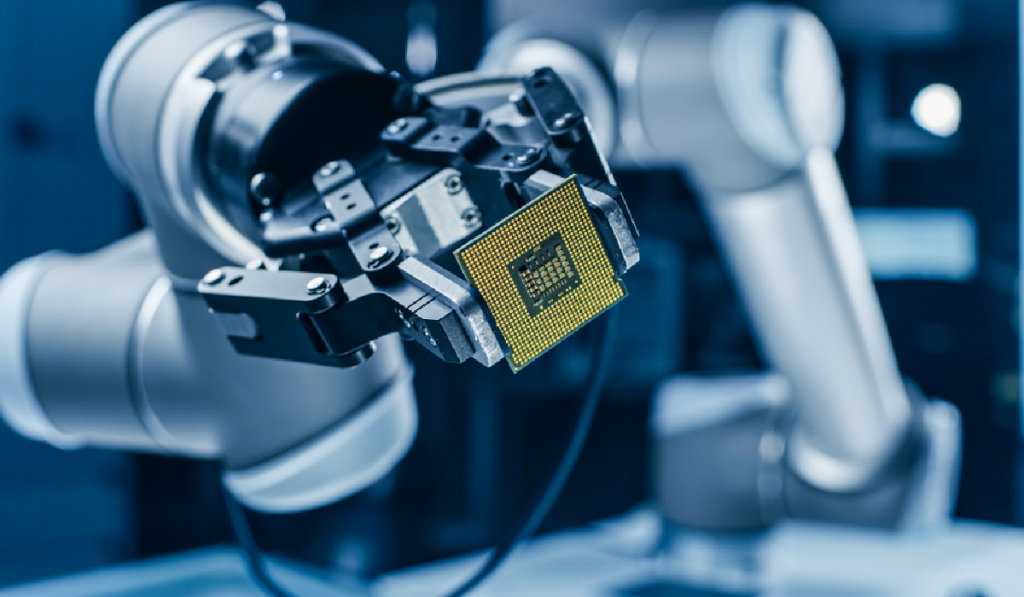Highlights:
- The Hailo-15 series’ three chips are capable of handling between 7 trillion and 20 trillion computations per second.
- The Hailo-15 series of processors employ a system-on-chip architecture, which entails the integration of various compute module types into a single silicon block.
Hailo Technologies Ltd., a chip firm, recently unveiled a new line of AI processors, the Hailo-15 family, which are designed specifically to run computer vision models.
Tel Aviv-based Hailo is supported with more than USD 223 million in funding. It creates AI processors for machinery, cars, and other systems. The business claims that hundreds of customers use their silicon on a global scale.
The Hailo-15L, Hailo-15M, and top-end Hailo-15H are the three processors that make up Hailo’s new Hailo-15 chip line. All three are intended to run AI models locally on smart cameras to analyze the data they record. The requirement to transport data to the cloud for processing is eliminated when AI models are run locally, which decreases bandwidth costs and eliminates the need for a constant internet connection.
Smart cameras with AI can be used by manufacturers to keep an eye out for manufacturing problems on the factory floor. In turn, a public transit company may use the technology to find misplaced luggage. According to Hailo, their chips are also well suited for a variety of other use cases, such as smart city automation.
Orr Danon, Chief Executive Officer, said, “Hailo-15 represents a significant step forward in making AI at the edge more scalable and affordable. With this launch, we are leveraging our leadership in edge solutions, which are already deployed by hundreds of customers worldwide; the maturity of our AI technology; and our comprehensive software suite, to enable high performance AI in a camera form-factor.”
The Hailo-15 series’ three chips are capable of managing between 7 trillion and 20 trillion computations per second. According to Hailo, this is more than five times the performance offered by its competitors. Additionally, the company guarantees to deliver the improved performance at a cost that is competitive with other options.
The Hailo-15 series of processors use a system-on-chip architecture, which means that many types of compute modules are combined onto a single silicon block.
Each Hailo-15 chip has circuitry that is tailored to run AI models. Additionally, a central processing unit and cybersecurity accelerators that aid in thwarting hacking attempts are onboard. Along with other security features, the accelerators offer firewall and encryption capabilities.
The Hailo-15 series employs an architecture that it refers to as structure-defined dataflow. The startup claims that because of the technology, its chips can run AI models more effectively than they otherwise could.
A neural network is divided into numerous smaller software components by Hailo’s structure-defined dataflow architecture. Each of those software components is then given a specific location on the chip that houses the neural network. According to the business, processing can be speed up by giving each component of an AI model access to the circuits that can run it most effectively.
According to the manufacturer, the Hailo-15 chips support a variety of AI models. They can run neural networks that automatically improve low-quality camera footage as well as object detection algorithms. Hailo asserts that each of the three chips can handle multiple video streams at 4K resolution, or 3,840 pixels by 2,160 pixels.
A chip generates more heat as it uses more electricity to process data. To remove the heat they generate, some processors use an active cooling system like a fan.
The company claims that its new Hailo-15 chip series has a power-efficient design that does not need a fan. The chips can now be added to smart cameras by manufacturers more quickly as a result. It is simpler to design compact cameras and costs less to produce when the need for a fan, which can occupy a fair amount of space in the device chassis, is eliminated.





























































